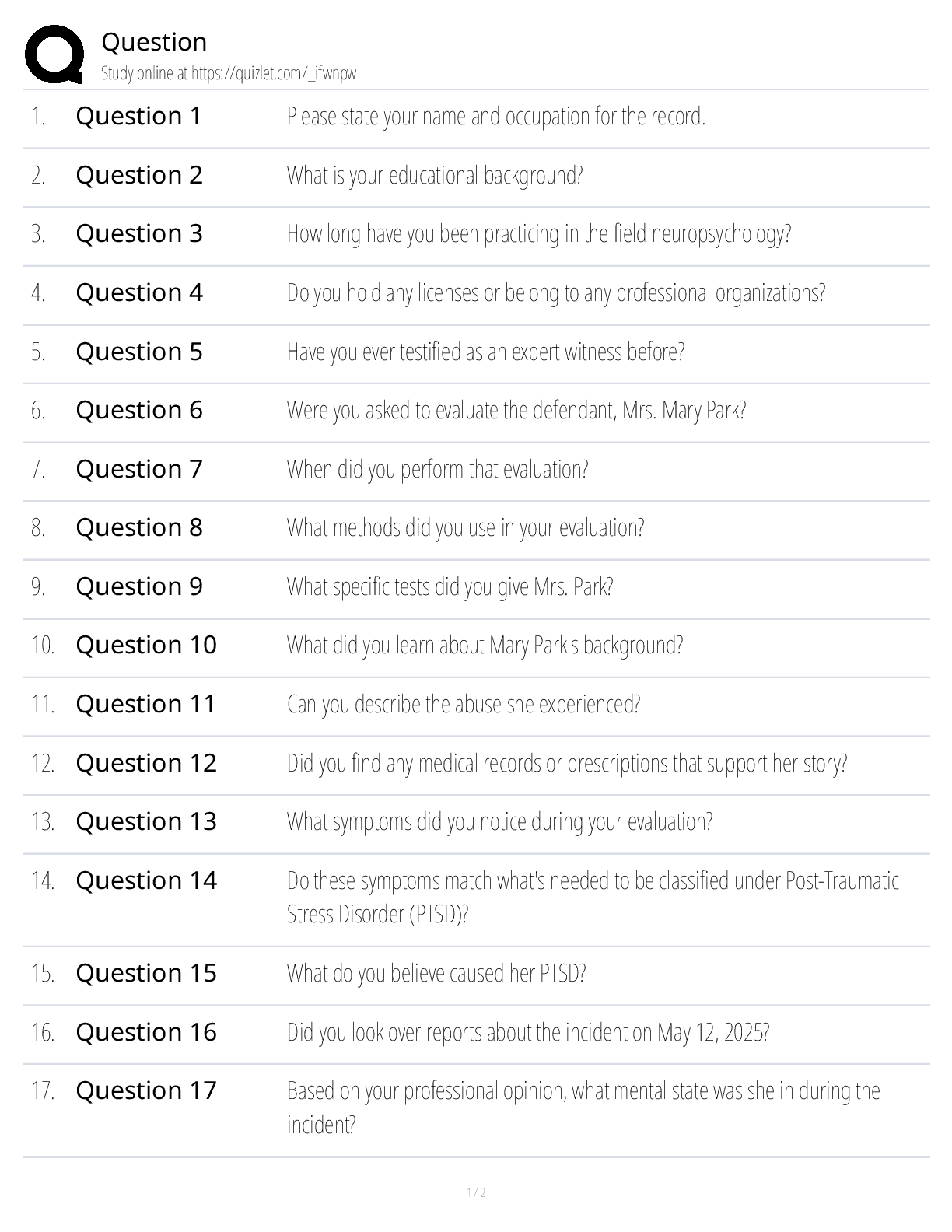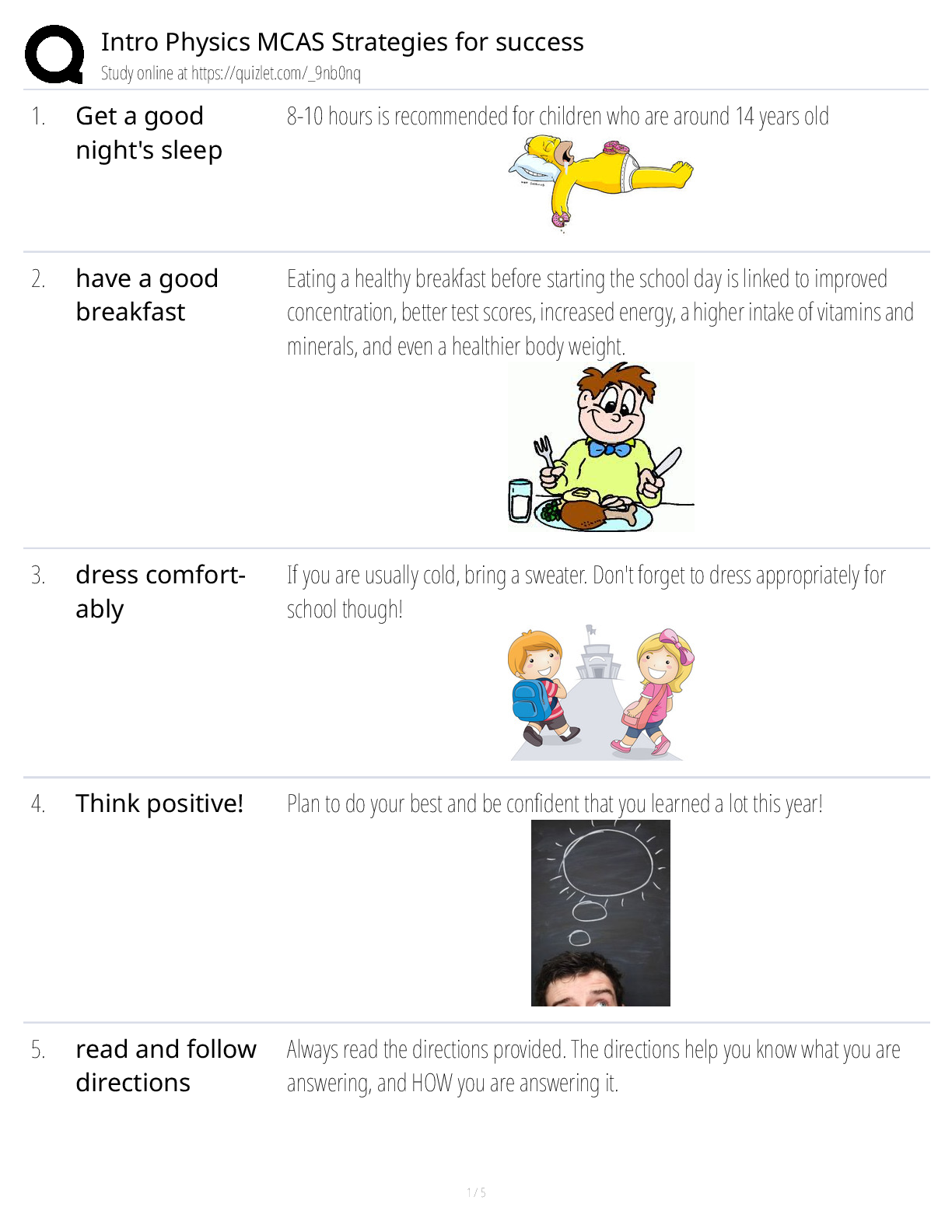Health Care > Class Notes > NURSING NSG 6020 / NSG6020 Week 10 Lectures (All)
NURSING NSG 6020 / NSG6020 Week 10 Lectures
Document Content and Description Below
Week 10 Lectures The Nervous System As a brief review, the nervous system may be viewed as two distinctive parts: the central nervous system (CNS) and the peripheral nervous systems (PNS). The CNS ... includes the brain and spinal cord, whereas the PNS encompasses the cranial nerves, the 31 pairs of spinal nerves, and branches. The PNS is responsible for carrying sensory messages to the CNS from sensory receptors, motor messages from the CNS to muscles and glands, and autonomic messages that control the internal organs and blood vessels. A nerve is a bundle of fibers found outside the CNS. Think of the nerve as a fiber-optic cable. It can carry messages to the CNS via the sensory afferent fibers and from the CNS via efferent fibers. The cranial nerves leave from and return to the brain instead of the spinal cord. The vagus nerve is the only nerve that does not serve the head and neck. The vagus nerve manages the heart, respiratory muscles, stomach, and gallbladder. The spinal nerves branch out in a ladder like fashion from the spinal column. Each spinal nerve has a dermatome or particular area of skin that it supplies sensation for. There is some overlap for each dermatome so that if one nerve is injured, another may help supply sensation for the affected area. Reflexes serve as a defense mechanism for the nervous system. The reflexes assist in maintaining balance and muscle tone. The four types of reflexes are: deep tendon (myotatic), superficial, visceral (organic), and pathologic (abnormal). An example of a deep tendon reflex would be the patellar or knee jerk An example of a superficial reflex would be the corneal reflex An example of the visceral reflex would be pupillary light reflex An example of the pathologic reflex would be the positive Babinski in an adult History of Present Illness – The Nervous System Headache Have you had any frequent or unusual headaches? When did the headaches start? How severe are the headaches? Rate the headaches on a scale of 1 to 10, with 1 being the least pain ever and 10 being the worst pain ever. How often do you experience these headaches? Where do the headaches usually occur? Point to the area for me. What does the pain feel like? Dull, aching, throbbing, stabbing, etc. Do you notice any other symptoms with the headache such as blurred vision, or loss of sensation in your face or other parts of the body? Does anything seem to trigger the headache, such as stress, foods, smells or odors, weather changes, or hormonal changes?Head Injury Have you ever had a head injury? Where on your head were you injured? Did you lose consciousness? How long were you unconscious? Did you receive treatment? If so, what kind of treatment? Were X-rays taken? Dizziness/Vertigo Do you ever feel lightheaded or faint? Perhaps a swimming sensation in your head? When have you noticed this sensation? How long does it last? Is it only with position change or activity? What makes it better? How often do you experience this problem? Have you ever been diagnosed or thought you had vertigo? This is more of a rotational, spinning sensation instead of just being dizzy. The patient may describe vertigo as being dizzy but try to clarify the differences for them. [Show More]
Last updated: 3 years ago
Preview 1 out of 19 pages

Buy this document to get the full access instantly
Instant Download Access after purchase
Buy NowInstant download
We Accept:

Reviews( 0 )
$15.00
Can't find what you want? Try our AI powered Search
Document information
Connected school, study & course
About the document
Uploaded On
Dec 29, 2020
Number of pages
19
Written in
All
Additional information
This document has been written for:
Uploaded
Dec 29, 2020
Downloads
0
Views
128















